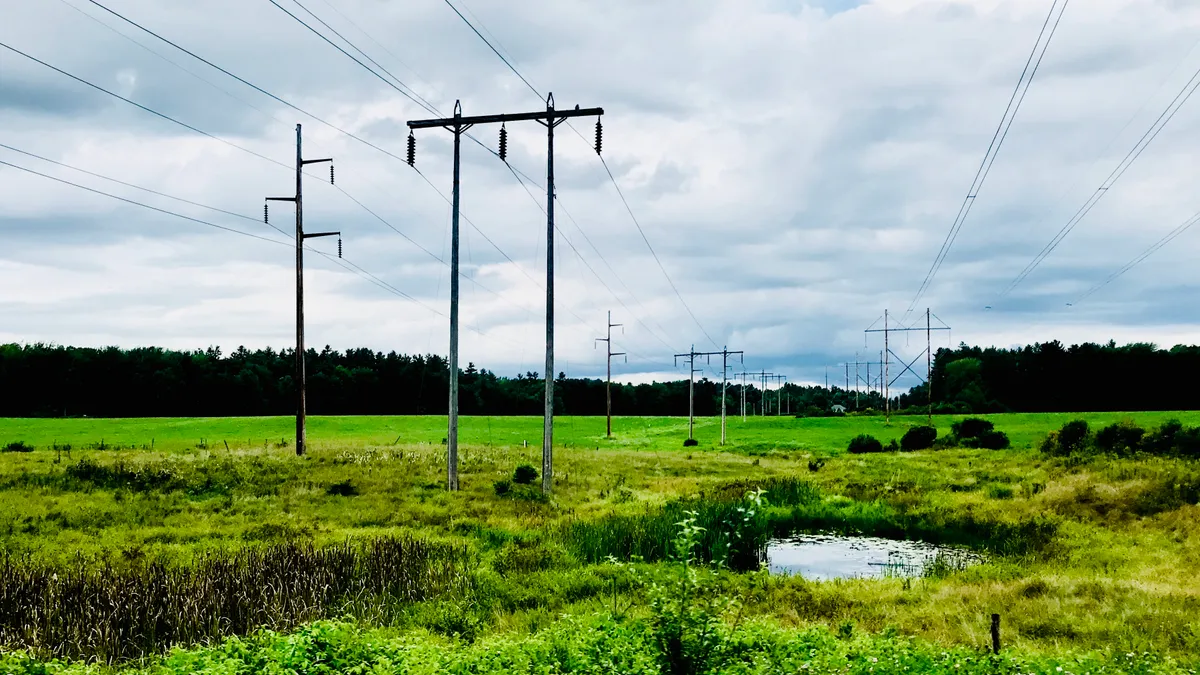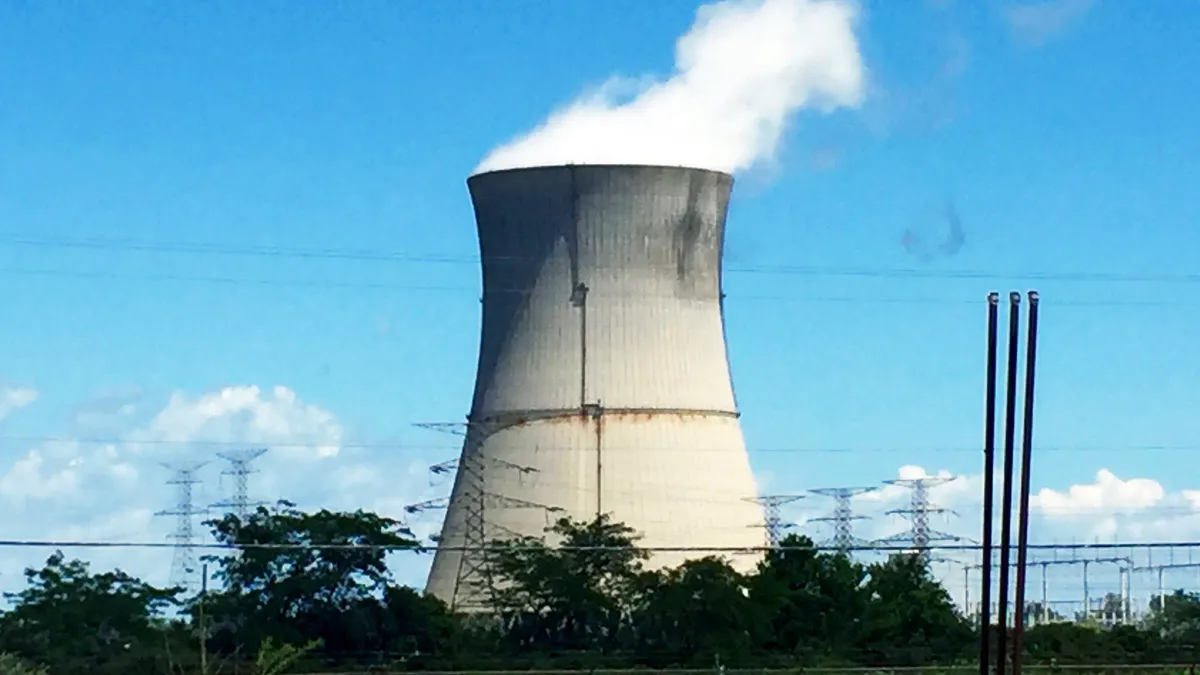Dive Brief:
- The U.S. Court of Appeals for the District of Columbia Circuit upheld a decision by the Federal Energy Regulatory Commission directing NextEra Energy Resources to install a circuit breaker at its Seabrook nuclear plant in New Hampshire, an upgrade needed for Avangrid’s $1.5 billion New England Clean Energy Connect, or NECEC, transmission project.
- The court, in a 2-1 decision on Friday, said FERC had statutory authority to require the upgrade, correctly interpreted the governing tariff and contract to require the upgrade, and permissibly denied NextEra compensation for lost power sales.
- The court decision likely resolves the last major hurdle for Avangrid’s 1,200-MW transmission project, ClearView Energy Partners said in a note to its clients. “It could also provide greater regulatory clarity for other project developers that may face similar circumstances when it comes to interconnections that require upgrades on the existing network,” the research firm said.
Dive Insight:
NECEC Transmission, an Avangrid subsidiary, is evaluating the construction schedule for the transmission project. It is also assessing the related commercial operation date and total project cost, including potential effects from increased construction costs, disputes with third party vendors regarding contracts and certain change orders, and a decrease in expected returns, Avangrid said in a July 24 Securities and Exchange Commission filing. Avangrid had capitalized about $1.1 billion on the project as of June 30, according to the filing.
ISO New England expects the project will begin participating in its markets by January 2026. “This transmission line will play a key role in supporting the region’s key access to clean energy and achieving broader environmental goals,” the grid operator said in a pending FERC filing posted Oct. 4.
Avangrid has made progress on building the transmission line, including setting 504 pole bases, erecting 441 poles and installing wire on 178 poles, Avangrid said in a July 1 update to the Maine Public Utilities Commission. The company said it started building an HVDC converter station in Lewiston, Maine, in August 2023.
With the project’s costs increasing from initial estimates, Avangrid is renegotiating power purchase agreements with Massachusetts utilities. “NECEC is involved in ongoing negotiations with the Massachusetts electric utilities with respect to amending the transmission service agreement originally reached and the outcome of these negotiations are critical to reaching commercial operations,” the company said in a separate PUC filing.
The D.C. Circuit court’s decision is a part of the long-running challenges to an effort to import hydro power into New England from Québec. In early 2018, Massachusetts’ utilities selected Eversource Energy’s Northern Pass transmission project to deliver 9.45 million MWh per year from Hydro-Québec into ISO-NE.
After the Northern Pass project failed to clear New Hampshire’s regulatory process, it was replaced by Avangrid’s NECEC project, a 320-kV, direct current transmission line set to run about 145 miles in Maine. Hydro-Québec is building part of the line in Canada.
The project overcame a series of hurdles in Maine, including a referendum backed by NextEra and other power plant companies that aimed to block it. Increased power supplies would put downward pressure on wholesale power prices in New England. The referendum passed but a court determined that Avangrid had already started work on the project and therefore could finish it.
The project requires a breaker upgrade at the Seabrook power plant in New Hampshire to safely deliver electricity into Massachusetts. In February 2023, FERC ordered NextEra to make the upgrade. In the dispute at FERC, Avangrid argued NextEra was delaying replacing the circuit breaker in an effort to block the NECEC project. NextEra denied those charges.
In its decision, the DC Circuit court rejected NextEra’s argument that because the Seabrook circuit breaker — which is at 99.6% of its capacity — was part of its generation system and not part of the interstate transmission system, FERC lacked statutory authority to require the upgrade.
The court said the upgrade directly affects the transmission of electricity in interstate commerce, which falls under FERC’s authority. “Seabrook’s barely-good-enough circuit breaker currently prevents other power sources from connecting to the interstate grid without posing substantial risks to Seabrook,” the court said. “If FERC could not order an upgrade in those circumstances, incumbent generators could unilaterally prevent competing sellers from joining the grid … And if FERC could not require generators to install circuit breakers at all, the entire grid would be left vulnerable to widespread outages from fault currents.”














